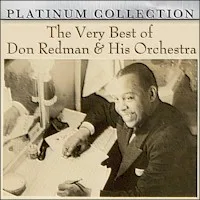Styles: Trumpet Jazz
Year: 2004
File: MP3@320K/s
Time: 57:40
Size: 135,5 MB
Art: Front
( 0:22) 1. Intro
( 2:27) 2. Seance
( 6:12) 3. Fela
( 4:44) 4. Cannabis Leaf Rag
(10:01) 5. Concentric Circles
( 3:05) 6. Go Round
( 5:55) 7. Blu Hays
( 7:35) 8. Two Mexicans On The Wall
( 4:15) 9. I'm Trying To Swing As Little As Possible
( 6:12) 10. Stardust
( 6:47) 11. Silence
Year: 2004
File: MP3@320K/s
Time: 57:40
Size: 135,5 MB
Art: Front
( 0:22) 1. Intro
( 2:27) 2. Seance
( 6:12) 3. Fela
( 4:44) 4. Cannabis Leaf Rag
(10:01) 5. Concentric Circles
( 3:05) 6. Go Round
( 5:55) 7. Blu Hays
( 7:35) 8. Two Mexicans On The Wall
( 4:15) 9. I'm Trying To Swing As Little As Possible
( 6:12) 10. Stardust
( 6:47) 11. Silence
On the surface, Nicholas Payton's Sonic Trance is a fusion band. The leader occasionally tricks out his horn with effects, pianist Scott Kinsey moves over to electric keyboard from time to time, and percussionist Daniel Sadownick does his best to establish an Agharta vibe on congas. But there is no electric guitar in Sonic Trance, and Vicente Archer lays down the groove over the course of this hour-long concert solely on acoustic bass. Every trumpet player is forced at one time or another to confront Miles' legacy, and the better the trumpeter, the closer he can get to meeting it. Nicholas Payton succeeds with originality, clarity and a fresh eclecticism. Miles is quoted briefly by saxophonist Tim Warfield on "Blu Hays," but the influences range much farther. Hugh Masekela and Fela Kuti on a track named for the Afrobeat legend, Scott Joplin and "Fascinatin' Rhythm" on "Cannabis Leaf Rag," and Monk on "I'm Trying to Swing as Little as Possible," which if judged relative to its title, fails utterly; Warfield can't help himself. "Two Mexicans on the Wall" begins by quoting "99 Bottles of Beer" mariachi-style and Payton turns in a guileless performance of "Stardust" before the tune is given over to Archer's funky wormy bass line. Warfield, featured chiefly on soprano for the first part of the disc, lets go on tenor for "Silence" before Kinsey takes over with wah-wah trombone and trumpet-splat keyboard effects. "Silence" doesn't last long enough. Recorded live at the 2004 International Association for Jazz Education (IAJE) conference, Payton's music is so organically conceived and so correct in its variety and logical choices that the whole hour passes much too quickly. This is a good thing, of course. When too many recordings fail to hold up beyond two or three listens, Sonic Trance sends you back to push play again and again. ~ Jeff Stockton https://www.allaboutjazz.com/live-in-new-york-12404-nicholas-payton-kufala-recordings-review-by-jeff-stockton.php
Personnel: Nicholas Payton, trumpet; Tim Warfield, saxophones; Adonis Rose, drums; Vicente Archer, bass; Scott Kinsey, keyboards; Daniel Sadownick, percussion
Live In New York 1.24.04




















